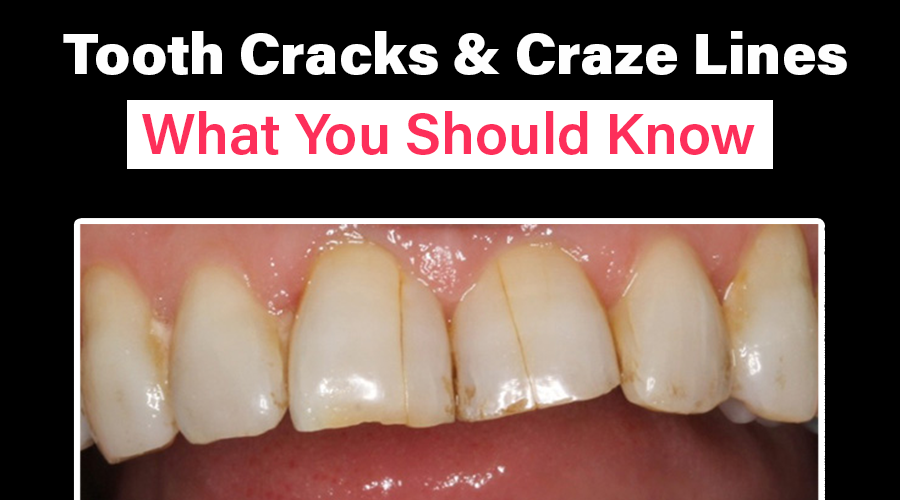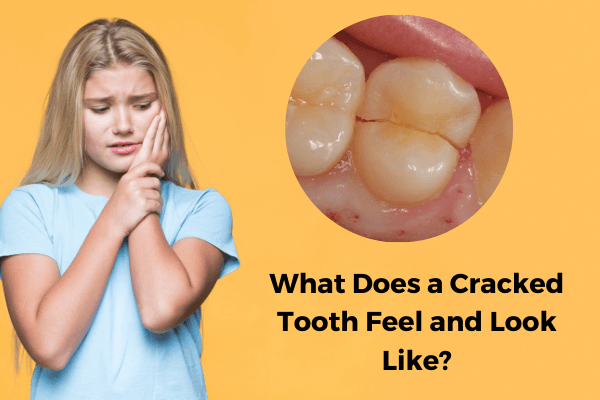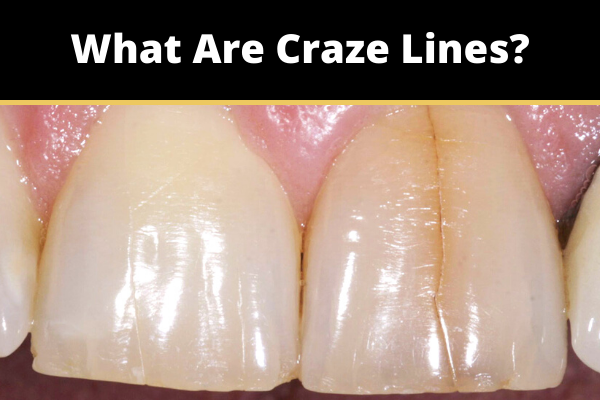If you noticed some new uninvited lines on your teeth, it’s natural to panic a little and start overthinking about what exactly they could mean or if they are going to compromise the entire tooth. Here, we’ll explain the main things you should know about tooth cracks and how to identify them.
What Does a Cracked Tooth Feel and Look Like?
Tooth cracks can manifest themselves in a variety of ways. They’re often large enough to reach not only the enamel but the root as well, and they can cause some pain, swelling, sensitivity, or discomfort at all.
You may get tooth cracks because of bruxism, previous dental work that may have weakened the tooth, or trauma.
Your dentist in San Diego may be able to save the tooth with a crown if the crack has not yet hit the pulp. If it has, though, we can perform a root canal to remove the pulp and place a porcelain crown to protect the tooth.
What Are Craze Lines?
If you see a line on your tooth that looks like a crack but has no other signs and isn’t causing you any discomfort, chances are you don’t need to worry.
What you’re most likely dealing with are craze lines. A cosmetic dental condition that, despite its frightening nature, is not a cause for concern.
Craze lines are tiny cracks that appear in the enamel of the tooth. They don’t go all the way through the tooth, and since the enamel lacks nerves, this type of tooth cracks don’t hurt.
While they’re more prominent on posterior teeth, which often have more chewing stress, the craze lines are pretty noticeable when they appear on the front teeth.
Craze lines will get more and more common as you age. And that’s normal.
They’re often the result of chewing for a long time and tend to appear more frequently for those who suffer from bruxism (clench or grind their teeth). This means that the more force you put on your teeth daily, the more likely you will develop craze lines.
Can a Craze Line Turn Into a Cracked Tooth?
Craze lines rarely worsen or result in cracks. However, they can make teeth more susceptible to decay, although this is uncommon in front teeth.
Practicing good dental hygiene habits will help prevent this. Brush your teeth right after drinking your favorite soda or eating that candy you really like, and floss your teeth.
Don’t neglect your teeth for anything. As long as you give them the attention and love they deserve, they won’t get worse.
How to Prevent Cracked Teeth and Craze Lines?
For cracked teeth, it’s recommendable to avoid chewing hard foods such as ice or nuts. It would help if you also stopped using your teeth as a tool for opening or cutting stuff. Make sure to protect yourself when doing physical activities or playing contact sports.
Craze lines, on the other hand, can be difficult to avoid altogether. Giving up habits that accelerate them can be helpful. Nail-biting or eating ice are some of the things you should avoid.
If you grind your teeth, you can look for activities that allow you to release stress and have a more relaxed lifestyle. Another solution would be to consult your dentist in San Diego and talk about the possibility of getting a night guard.
Stopping the use of nicotine and avoiding dark-colored drinks will also help minimize noticeable craze lines.
Top Solutions for Craze Lines and Cracked Teeth
When we talk about fixing a cracked tooth, the solution will depend on how bad is the damage. That will determine the length and cost of the treatment you need, which could be:
- Dental filling: a filling is a procedure that restores the function and shape of a tooth that has been weakened by decay or damage. If only a tiny portion of your tooth enamel has been chipped away, your dentist in San Diego might be able to fix it with a filling.
- Tooth bonding: this is a process in which your dentist uses a tooth-colored composite resin to restore damage to one or more of your teeth. It is also a straightforward process.
- Root canal: this therapy can repair and save a significantly damaged or infected tooth from extraction. It consists of cleaning the canals inside of the tooth’s root. To restore your tooth’s appearance, your dentist can put a dental crown on top.
- Extraction: If the tooth’s condition is really bad and extended below the gum line, your San Diego dentist will have to remove the tooth. To replace it and avoid bone loss, you can opt for a dental implant.
With craze lines, however, you have some more simple solutions. If you don’t like how they look on your smile, these are some actions you can take:
- You can lighten your teeth with different products at home, such as whitening strips or whitening toothpaste.
- You can get an at-home professional whitening kit for better results.
- Using composite resin to fill in the lines.
- Professional in-office teeth whitening.
- Porcelain veneers.
Conclusion
Craze lines are usually harmless, although you have to make sure to continue with a good hygiene routine so your teeth don’t develop decay.
However, a cracked tooth will likely cause you some discomfort, and you mustn’t put off its treatment as it can worsen very quickly.
If you’d like to know more about treating both of these issues, don’t hesitate to contact San Diego dentist Dr. Serena Kurt. She can help you restore your smile with a high-quality, caring service.







